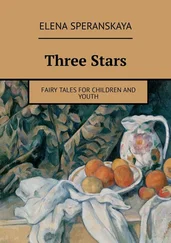Various - Tales for Young and Old
Здесь есть возможность читать онлайн «Various - Tales for Young and Old» — ознакомительный отрывок электронной книги совершенно бесплатно, а после прочтения отрывка купить полную версию. В некоторых случаях можно слушать аудио, скачать через торрент в формате fb2 и присутствует краткое содержание. Жанр: Сказка, foreign_antique, foreign_prose, на английском языке. Описание произведения, (предисловие) а так же отзывы посетителей доступны на портале библиотеки ЛибКат.
- Название:Tales for Young and Old
- Автор:
- Жанр:
- Год:неизвестен
- ISBN:нет данных
- Рейтинг книги:3 / 5. Голосов: 1
-
Избранное:Добавить в избранное
- Отзывы:
-
Ваша оценка:
- 60
- 1
- 2
- 3
- 4
- 5
Tales for Young and Old: краткое содержание, описание и аннотация
Предлагаем к чтению аннотацию, описание, краткое содержание или предисловие (зависит от того, что написал сам автор книги «Tales for Young and Old»). Если вы не нашли необходимую информацию о книге — напишите в комментариях, мы постараемся отыскать её.
Tales for Young and Old — читать онлайн ознакомительный отрывок
Ниже представлен текст книги, разбитый по страницам. Система сохранения места последней прочитанной страницы, позволяет с удобством читать онлайн бесплатно книгу «Tales for Young and Old», без необходимости каждый раз заново искать на чём Вы остановились. Поставьте закладку, и сможете в любой момент перейти на страницу, на которой закончили чтение.
Интервал:
Закладка:
The correct light in which Dodbury thus considered the matter, induced Mrs Hardman to change her policy. After complimenting the lawyer and Catherine for their honourable forbearance, she went on to say that she unhappily had but little influence over her son. 'Would you , therefore, endeavour to point out to him the folly of his persistence in following a young lady whom he can never marry?' Dodbury promised to do so, and the lady departed so well pleased with the interview, that she wrote to Lady Elizabeth Plympton, inviting her to spend the ensuing month at Coote-down.
That day, after hearing the most favourable report of Catherine's recovery which had yet been made, Dodbury invited Herbert to dine with him. After the cloth was removed, the subject of the morning's conversation with Mrs Hardman was introduced. Herbert stammered and blushed: he was not prepared to talk about it just then, and endeavoured to change the topic more than once; but Dodbury kept to the point, till Herbert owned, in fervent and glowing words, that Catherine had completely won his heart, and that he would rather die than be forced into a match with another woman.
'All which,' replied the matter-of-fact man of parchment, 'is very spirited and romantic, no doubt. But let us look at the affair with calm and clear eyes. You profess to love my child with strong and unquenchable passion?'
'Profess! Do you doubt me?'
'I do not doubt that you are perfectly in earnest now ; but my knowledge of mankind forbids my putting much faith in the endurance of the sort of feeling with which you profess—I cannot give up the word, you see—to be inspired. My child, so says the world, is beautiful—very beautiful. Yours may be a mere passion for her beauty.'
'You wrong me,' replied the young man; 'I have known and admired her long enough to appreciate her intrinsic worth. Her image is as dear to me as my own life'
Dodbury bent on his young friend a long and earnest look of inquiry. He was a good reader of human nature. He saw that, as the lover spoke, his eye lightened with enthusiasm, his lips quivered with emotion, his cheeks glowed with blushes. 'I have little faith in these violent emotions,' thought the wary man of the world, as he leaned back in his easy-chair for a moment's reflection. 'Fierce flames burn out quickly. This affair surrounds me with difficulties.'
About a month after Miss Dodbury's complete recovery, her father opened the same topic gradually and delicately to her. Catherine had scarcely nurtured a thought which she had not confided to her father; being her only parent, she looked up to him as the directing source of all her actions. He was 'the king of her narrow world.' In discussing this matter, therefore, though overwhelmed with a maiden shame, she was not reserved. From what she said, the sorrowing father gathered that her maiden affections were twined around a man whom her own innate propriety and pride, not to include other obstacles, should prevent her from marrying. This disclosure gave Dodbury great pain. He determined to use more vigilance, caution, and prudence, than ever. His obvious course was to bring about, if possible, a reconciliation to the match with Mrs Hardman; but he refrained. The purity of the young lover's sentiments had yet to be tried. Time, he determined, should put that to the test.
Meanwhile, Lady Elizabeth had accepted Mrs Hardman's invitation. She and Herbert Hardman were constantly thrown together; and it was manifest, after a time, that despite the almost studied neglect with which he treated her ladyship, she entertained a strong feeling in his favour. This Mrs Hardman endeavoured by every means in her power to induce Herbert to reciprocate; but in vain—the attraction of Catherine Dodbury was too powerful. It must be owned, however, that his vanity was a little flattered by the haughty beauty condescending to feel a sentiment for him.
This state of things was too equivocal and uncertain to last. Catherine strove, as long and as firmly as maiden could strive, against her love; whilst Herbert fed his by every sort of attention it was possible to evince. At length Dodbury felt the necessity of some strong measure. He perceived that consent to the match was less likely than ever, since the tender regard which Lady Plympton had evinced. He, therefore, after a long interview with Mrs Hardman, penned a kind note to Herbert, in which he, with every expression of regret for the step he felt bound to take, forbade him his house, or any further communication with his daughter.
Though long anticipated, this was a bitter blow, Catherine strove not to check the master-feeling which had now taken possession of her whole thought and being, for she knew that was impossible; but, in the purity of her heart, she felt she could love on—more tranquilly, more calmly, now that all hope was abandoned, than when it was nursed in suspense. Deprived of Herbert's presence, she would love him as an imagined, ever-remembered being—an abstraction, of which, the embodiment was dead to her for ever. With this new said consolatory sensation she determined, without a tear, never to encounter his real presence again. She wrote him a note to that effect, and, accompanied by her father, went immediately to London.
Herbert was frantic. He upbraided his mother with unfilial earnestness. He appealed to his father, who consoled him by saying he was sorry that, as he always left these matters to his mother's management, he could not interfere; adding, that so far as he was a judge, the Lady Elizabeth Plympton was an uncommonly fine young woman.
After calm consideration, Herbert made up his mind as to what he should do. The estate was entailed; that made him comparatively independent; and he would endeavour, as well as his impetuous passion would allow, to live on in the hope that at length his mother would give her consent, and that Catherine would retract her determination. In pursuance of this plan, he apologised to his mother for his previous wrath, and treated Lady Elizabeth, during the remainder of her visit, with politeness; but it was a studied, constrained, and ironical sort of courtesy, which pained the unoffending but humbled beauty much more than overt rudeness. When the young lady was about to depart, he surprised his mother by the gallant offer of accompanying her and their visitor to her father's, near Plymouth.
These favourable symptoms Mrs Hardman reported to Dodbury, who, seeing his daughter's perfect resignation, thought it might be not imprudent to return home, especially as young Hardman was to remain at the Earl of Plympton's for a few weeks. He, however, carefully concealed the apparent attachment of Lady Elizabeth from his daughter. Accordingly they returned to their home, Catherine appearing but a slight degree saddened and changed in spirit. A feverish languor, however, of which she neglected to complain or to ask medical advice for, was making inroads on her health.
Mrs Hardman, after staying a week at the earl's, returned, congratulating herself on the seeming change which was gradually creeping over her son's sentiments. She allowed him to remain a month unquestioned; but after that time, family matters required Herbert's presence at Coote-down, and she wrote, desiring him to come home. To her surprise, her letter was returned unopened, franked by the earl. Herbert must have left Plympton Court then, and would doubtless be home in the course of the day.
But that day passed, and another, and another, yet no tidings of Herbert. Mr Hardman now became alarmed, and wrote. The answer was, that his son had started for Coote-down that day-week! Inquiries were set on foot in all directions. Every house was sent to at which the young man was known to visit. Advertisements were circulated throughout the country, and afterwards published in the London newspapers, for tidings of Herbert Hardman, but without effect. The most distressing fears were apprehended respecting his fate. His parents were distracted; and the only conjecture which could be formed was, that as war had just broken out with America, he had been kidnapped by a press-gang for the sea-service.
Читать дальшеИнтервал:
Закладка:
Похожие книги на «Tales for Young and Old»
Представляем Вашему вниманию похожие книги на «Tales for Young and Old» списком для выбора. Мы отобрали схожую по названию и смыслу литературу в надежде предоставить читателям больше вариантов отыскать новые, интересные, ещё непрочитанные произведения.
Обсуждение, отзывы о книге «Tales for Young and Old» и просто собственные мнения читателей. Оставьте ваши комментарии, напишите, что Вы думаете о произведении, его смысле или главных героях. Укажите что конкретно понравилось, а что нет, и почему Вы так считаете.












